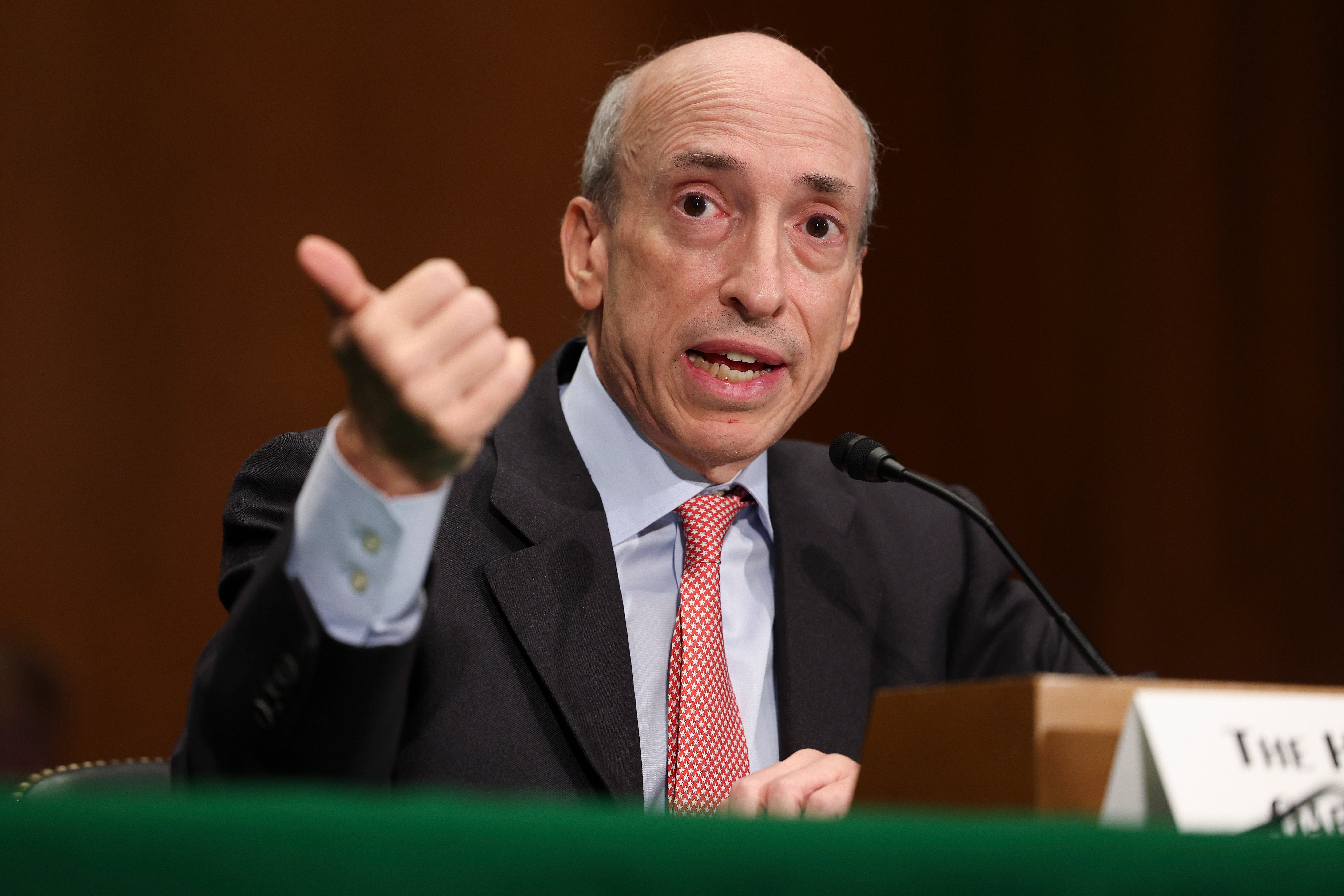
U.S. regulators last year laid the groundwork to address the threat climate change poses to the global financial system.
This year may be the year that those efforts bear fruit.
Success will depend on how quickly bodies such as the Securities and Exchange Commission can finalize the climate-related policies outlined for 2022, and the level of resistance they face in Congress and the courts. The results could fundamentally change how the U.S. economy responds to the effects of global warming.
Last year was a “year of proposals and plans,” said Todd Phillips, financial regulation expert and founder of progressive consulting firm Phillips Policy Consulting LLC. Therefore, this year “must reap the benefits.”
Key issues to watch for climate-related financial risks in 2023 are:
SEC rules
Last year, the SEC proposed three rules aimed at making investment options clearer to explain to investors companies and their climate-related financial risks, as well as social and environmental issues. .
The big question going forward is when these rules will be finalized and enforced, and what the finished version will look like.
Perhaps the most controversial rule requires publicly traded companies to disclose their greenhouse gas emissions and their climate-related risks, plans and strategies. The new approach overhauls corporate disclosure processes.
The other two rules are intended to put guardrails on what types of investments can be classified as green. sustainable; or Environmental, Social and Governance (ESG) funds. These types of products have exploded in popularity as investment firms race to meet the public demand for sustainable investment options, and some funds have made the mistake of trying to attract more customers. Concerns have been raised about being labeled.
Now that the comment period for climate disclosure and ESG rules has ended, the SEC’s current work is to address the thousands of comments submitted, develop the final rules, and explain why they are necessary and legally justifiable. to explain.
The SEC did not respond to questions about future timelines. Experts and proponents of climate disclosure say there is no way to say when officials will end and enforce regulations.
“I think we’ll see sometime this year. , if it is a high priority, they will want to be the defenders of it. [in court] Corinne Snow, attorney at Vinson & Elkins LLP, which specializes in environmental law and regulatory compliance, said:
There are several factors that complicate the timeline. For starters, SEC Chairman Gary Gensler has embarked on an ambitious rulemaking agenda in which he will propose 26 new rules in his first eight months of 2022, compared to his predecessor. rice field. Heavy workloads can slow agency progress.
The main challenge, however, is the large amount of feedback agencies have received on these issues. While many investors, outside groups and Democratic lawmakers are in favor of the rule, officials are also facing fierce backlash. Opposition is likely to lead to legal challenges, which could delay implementation even after the final rule is announced.
Favor governments: There is a growing consensus among investors, regulators and businesses around the world that climate change poses significant financial risks, and this deserves further clarification.
Kristina Wyatt, senior vice president of global regulatory disclosures at carbon accounting firm Persefoni and former senior adviser to the SEC on climate and environmental, social and governance, said, “I don’t think we’re slowing down.” rice field.
climate guidance
Last year, three major banking regulators issued nearly identical guidance outlining how they would expect major U.S. banks with more than $100 billion in assets to manage their exposure to climate change. proposed (climate wireDecember 5, 2022).
The proposal signals that the Federal Reserve, the Office of the Comptroller of the Currency, and the Federal Deposit Insurance Corporation want their largest lenders to assess and limit their exposure to climate impacts and clean energy transitions. I am clarifying.
The reason is that climate change “poses clear and significant risks to the U.S. financial system and, if unmitigated, could pose a near-term threat to safe and sound banking operations and financial stability.” .
Each agency issued its own request for comment. The OCC and FDIC comment periods ended in February and June respectively, while the Fed’s comment period won’t end until next month.
The next step for these regulators is to address comments and release a final version of the guidance to clarify future expectations.
Federal Reserve Scenario Analysis
The Fed will also launch its first-ever exercise aimed at assessing the readiness of major banks for the financial realities of a warming world.
Central bank officials said in September they would require the country’s six largest banks to undergo a “pilot climate scenario analysis” from 2023.climate wireSeptember 30, 2022).
Fed officials said the exercise would not directly affect financial institutions such as Bank of America, Citigroup, Goldman Sachs Group, JPMorgan Chase & Co., Morgan Stanley and Wells Fargo. emphasized.
However, it is still unclear when the tests will start and what they will entail. The Federal Reserve has said the exercise will end in late 2023, but other details are still unknown.
Some outside experts expect the Federal Reserve to engineer several climate scenarios, including a future in which no meaningful steps are taken to curb global warming. Banks then evaluate how their balance sheets perform in these hypothetical situations.
CFTCs
The Commodity Futures Trading Commission may also join the move.
The agency that regulates U.S. derivatives markets will in June take a closer look at a $1 billion voluntary carbon market that allows companies to offset global warming emissions by investing in green projects. Said it was planned.
CFTC Chairman Rostin Behnam recognizes the market’s ability to fight fraud and other abuses as companies race to improve their businesses and reputations, and in some cases buy offsets that do not lead to advertised emission reductions. sometimes.
What Behnam doesn’t say is how agencies might get involved. But the agency held an all-day event in June to gather insights from experts and formally requested public comment (climate wireJune 3, 2022).
The comment period ended in August.
The CFTC has not provided additional information on how it thinks about the issue, but Phillips, former director of Citizens for American Progress and founder of Phillips Policy Consulting, an FDIC attorney, said the CFTC but public input.
“The question is, are they just going into the offset market or are they going into the offset issue itself,” said Phillips.
Reprinted from E&E News with permission of POLITICO, LLC. Copyright 2023. E&E News provides essential news for energy and environmental professionals.











